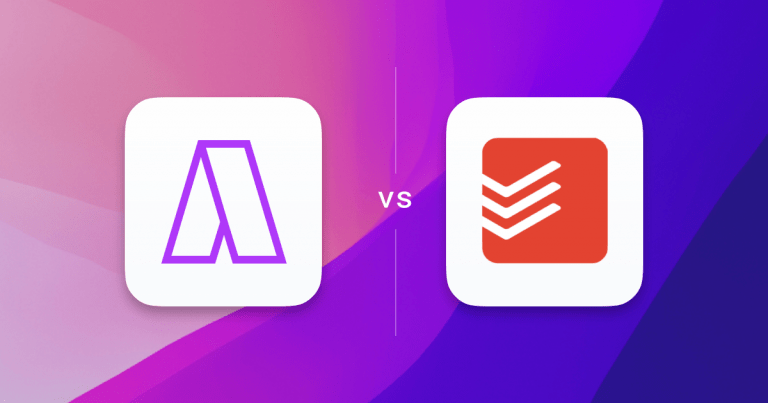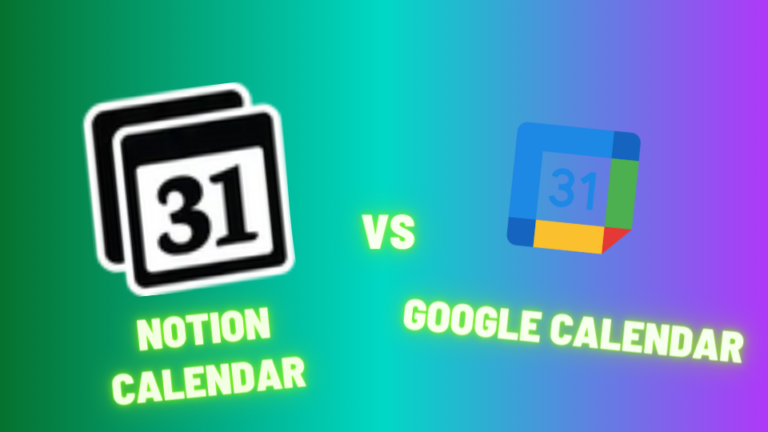What is Google Calendar
Google Calendar is free-to-use calendar application that excels in event planning, appointment scheduling, and integrating seamlessly with Google’s suite of services including Docs, Meet, and Tasks. It boasts features such as easy event scheduling, comprehensive integration with other Google services, sharing and collaboration tools, mobile access, automatic syncing across devices, customization options, and support for recurring events. Additionally, it offers functionalities like invitations and RSVP tracking, reminders, time management tools, search capabilities, holiday calendars, and weather integration for upcoming events.
Key Features of Google Calendar
- Seamless Integration with Google Services: Google Calendar is tightly integrated with Google’s ecosystem, including Gmail for event invitations, Google Meet for video conferencing directly from calendar invites, and Google Tasks for task management. This integration enhances productivity by keeping all tools in one accessible location.
- Easy Event Scheduling and Sharing: The platform enables users to quickly add events, set reminders, and share their calendars with others. This feature is designed to facilitate collaboration and ensure that scheduling meetings or events is a hassle-free process, making it ideal for both personal and professional use.
- Customizable Views and Event Colors: Users can customize their calendar views (day, week, month, or year) and assign colors to different events, making it easier to manage and visually distinguish between various types of appointments or tasks at a glance.
- Recurring Events and Reminders: Google Calendar supports the creation of recurring events and configurable reminders, which can be set to notify users via email or pop-up messages. This ensures that important dates are not missed and helps in establishing routines.
- Mobile Accessibility and Offline Support: With its mobile app, Google Calendar offers the convenience of accessing and managing your schedule on the go. Additionally, offline support means you can view your calendar and receive notifications even without an internet connection.
- Time Zone Support and Working Hours: This feature is particularly useful for those working across different time zones, as it automatically adjusts meeting times accordingly. Setting working hours also helps in managing availability, preventing meetings from being scheduled outside of these times.
What is Notion Calendar
The Notion Calendar, previously known as Cron Calendar, is a calendar application designed for managing meetings and events. It integrates closely with Notion documents, allowing users to connect their Google calendars, schedule meetings, manage events, and collaborate on upcoming events. It supports video conferencing links for platforms like Zoom and Google Meet, offers color coding for time blocking, and has deep integrations with Notion databases.
Key Features of Notion Calendar
- Google Calendar Integration: This feature allows users to seamlessly connect their Google Calendar with Notion, enabling efficient management of events and meetings within a unified interface. It simplifies scheduling and updating events across platforms.
- Meeting Booking Functionality: Notion Calendar offers a user-friendly interface for scheduling meetings. This includes options for setting up recurring meetings, sending invitations, and managing RSVPs, streamlining the meeting planning process.
- Notion Page Connectivity: Users can link calendar events to specific Notion pages, facilitating better organization and access to related notes, tasks, or documents associated with an event. This integration enhances productivity and project management.
- Video Conferencing Integration: The calendar supports adding video conferencing links from popular platforms like Zoom and Google Meet directly into event details. This feature is particularly useful for remote teams and virtual meetings, offering convenience and efficiency.
- Color Coding and Time Blocking: Notion Calendar allows users to color code their events for better visual organization. The time blocking feature helps in allocating specific time slots for tasks, aiding in time management and daily planning.
- Cross-Platform Availability: It is accessible on various platforms including iOS, Windows, Mac, and the web. This cross-platform availability ensures users can manage their calendars and stay organized regardless of the device they are using.
Google Calendar vs Notion Calendar: Features
| Features | Google Calendar | Notion Calendar |
|---|---|---|
| Integrations | ClickUp, Google Tasks, Zoom, Slack, Salesforce, Google Docs | Notion, Zoom, Google Calendar |
| Calendar | Yes | Yes |
| Platforms | macOS, iOS, Android, Web | macOS, iOS, Android, Web, Windows |
| Task Management | NA for Calendar | No |
| Natural Language Processing | Yes | No |
| Time Blocking | Yes | Yes |
| Analytics | No | No |
| Meeting Scheduler | Yes | Yes |
| Time Zones | Yes | Yes |
| Reminders | Yes | Yes |
| Customer Support | Average | Average |
| 1:1 User Onboarding | No | Yes |
| Pricing | Free to use | Free |

Google Calendar vs Notion Calendar: Pricing
Google Calendar Pricing
Free to use
Notion Calendar Pricing
Notion Calendar is free to use for Notion users
Google Calendar vs Notion Calendar: Reviews
Google Calendar Review
Google Calendar is praised for its seamless integration with Google’s ecosystem, offering easy scheduling, comprehensive reminders, and mobile accessibility. It excels in simplicity and functionality, fitting both personal and professional use. However, it might lack advanced project management features found in dedicated tools, and some users may find its interface less customizable compared to specialized calendar apps.
Notion Calendar Review
The Notion Calendar, previously known as Cron Calendar, is appreciated for its seamless integration with Google Calendar and its ability to manage events alongside Notion project timelines. It’s praised for its intuitive scheduling features, support for different time zones, and a modern, clean design. However, some users might find limitations in advanced features like detailed task analytics or the lack of more diverse integrations beyond Google services. It’s suitable for both personal and professional use but might require additional tools for more complex task management needs.
Which One Should You Pick
Consider Google Calendar if
- You seek simplicity and integration with Google’s suite for straightforward scheduling needs, though it may lack the depth in task management features found in more specialized tools.
- Your workflow benefits from easy access and sharing capabilities across devices, though it might not offer the advanced customization options of some competitors.
- You value the convenience of mobile access and automatic syncing, keeping in mind that users looking for comprehensive project management tools may find it limiting.
Consider Notion Calendar if
- You Value Google Calendar Integration: If syncing with Google Calendar is central to your workflow, Notion Calendar’s integration can streamline your scheduling process, although it may lack variety in other third-party integrations.
- You Utilize Notion for Project Management: The calendar is beneficial for those already using Notion for project management, but it might not offer the depth required for more complex task management outside the Notion ecosystem.
- You Prefer a Clean, Minimalist Design: Its straightforward and clean design is ideal for users seeking simplicity, but it may not satisfy those needing more intricate or customizable scheduling features.
Best Google Calendar and Notion Calendar Alternative
Akiflow: Akiflow is a time management app offering time blocking, task scheduling, and integrations with various tools. It focuses on productivity and organization through a unified task and appointment interface.
Akiflow Price: $19 per month, paid annually

Best Time Blocking Web and Desktop Apps, 2024
Explore the best time blocking apps of 2024! Discover how Akiflow, TickTick, Usemotion, Sunsama, Sortedapp, and TimeHero revolutionize productivity, offering unique features for professionals and students to manage tasks and enhance efficiency.

Improve Focus: 5 ADHD Productivity Tools & Calendar Apps for 2023
Discover five of the best apps and tools for those with ADHD, from note-taking apps to time-blocking platforms. Get ready to stay organised, motivated and on track with Akiflow’s essential guide.

The Top 3 Todoist Alternatives (In-Depth Review)
Over 25 million people now use Todoist to stay on track and plan their day. It has expanded rapidly and is now a widely used task manager with seamless integrations into other task and calendar managers like Akiflow. While Todoist is hugely popular among its wide user base, there are now a variety of Todoist […]

